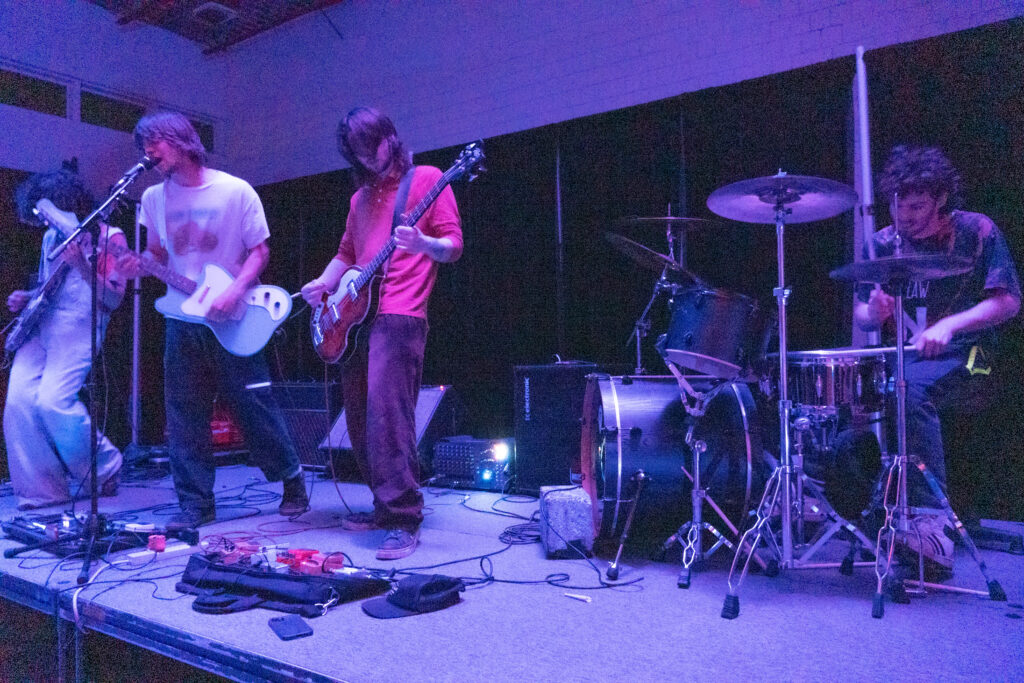
Mr. Singer answered student questions in the Humanities Rotunda after his schoolwide lecture. Photo by Kathryn Phillips/The Choate News
Earlier this year, the HPRSS Department named Mr. Peter Singer the Charles Krause ’51 Fellow in Rhetoric and invited him to deliver the annual Krause Lecture. Mr. Singer delivered his speech to the student body last Friday, October 5. Mr. Singer is a leading figure in his field of bioethics and philosophy, serving as a professor of bioethics at Princeton University and the University of Melbourne. He has also started a foundation to fight extreme poverty based on his ethical principles.
Known for his advocacy to give to the poor and liberate animals treated inhumanely in factory farming, Mr. Singer’s essay “Famine, Affluence, and Morality” and his book Animal Liberation have inspired great change in the study of what’s known as effective altruism and the animal-rights movement. Many call Animal Liberation the intellectual beginning of the animal rights movement.
On why Mr. Singer was chosen as the Fellow in Rhetoric, Ms. Amy Foster, Head of the HPRSS Department, said, “Philosophy is part of this department, and it’s not common for us to bring a philosopher to campus. Many people call Singer the most influential living philosopher, and he has had an impact on a lot of different fields.”
She went on, “Not everyone agrees with him, and not everybody agrees with the reasons he does things, but he has had a large impact on not just thinking but doing. He’s not just a philosopher who sits on deep thoughts, but he wants to actually take action to follow through on his ethical principles.”
Mr. Singer’s speech focused mainly on effective altruism and how students can give to efficient charities. Mr. Singer urged students to think about how to ensure that their altruism and donations would have the maximum benefit possible. Mr. Singer reinforced this argument by stating his belief that everyone should act in a way that can maximize happiness and minimize suffering for everyone in the world. He also detailed his thoughts about the value of animal lives in the factory farming industry.
After his talk, Mr. Singer was available in the Humanities Rotunda to answer students’ questions.
Mr. Singer refused a speaker’s fee from Choate, and instead expressed his wish to donate that speaker’s fee to a charity. Choate students were tasked with voting on one of four charities chosen by Mr. Singer to donate the speaker’s fee to. The four choices were Against Malaria Foundation, GiveDirectly, The Humane League, and The Good Food Institute.
Singer’s visit was a highly anticipated one and elicited a variety of reactions from students. Students in Choate’s Chamber Chorus met Mr. Singer prior to his talk. They met with Mr. Singer to discuss some of his ideas so they could better understand the lyrics of one of the songs they were performing, a song made up of excerpts from his works. “He made some very strong points on both how vegetarianism is beneficial to the world and our consumption of fuel as well as how he first formed those views through some meaningful conversations during his college years,” said Mia Katz ’21, a member of Chamber Chorus.
Many students had studied or heard about some of Singer’s more controversial opinions and were hoping to hear more about those.
Ethan Luk ’20 said, “The controversial topics I would have liked him to talk about are his views on necrophilia, bestiality, and the infanticide of disabled children, which are topics I have heard he has very controversial opinions on.” He continued, “I think it speaks volumes when even the Q&A session was more educating and entertaining than the talk.”
Bekah Agwunobi ’19 echoed these sentiments and added, “I do think that we have to discuss the implications of our own altruism, and I don’t really think he touched on the fact that not all altruism comes from a well-intentioned place, which is equally important to the discussion.”



